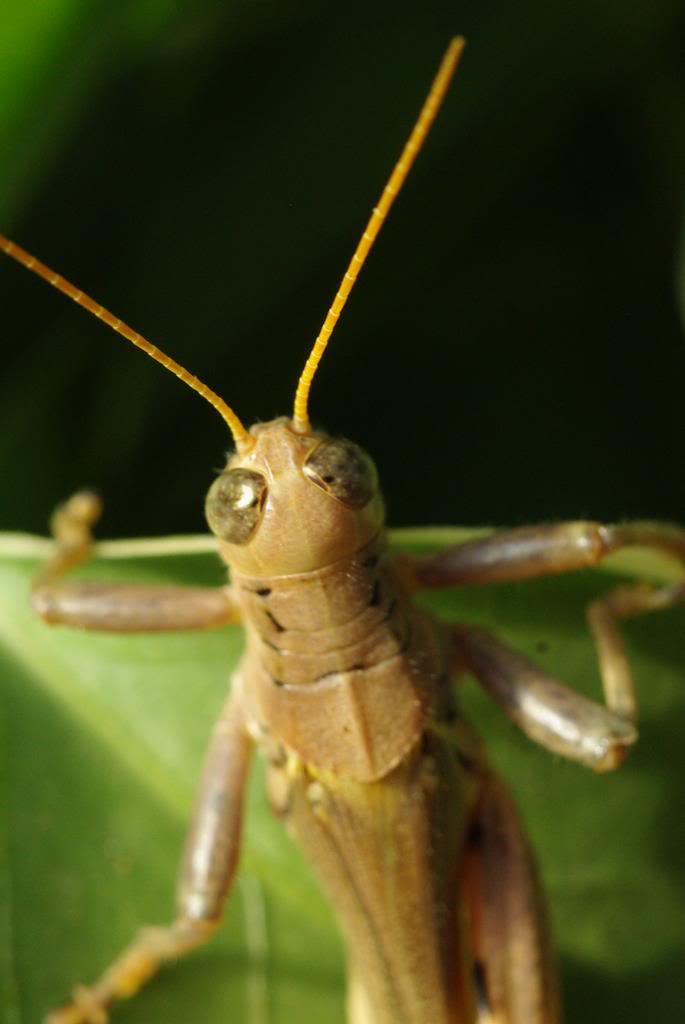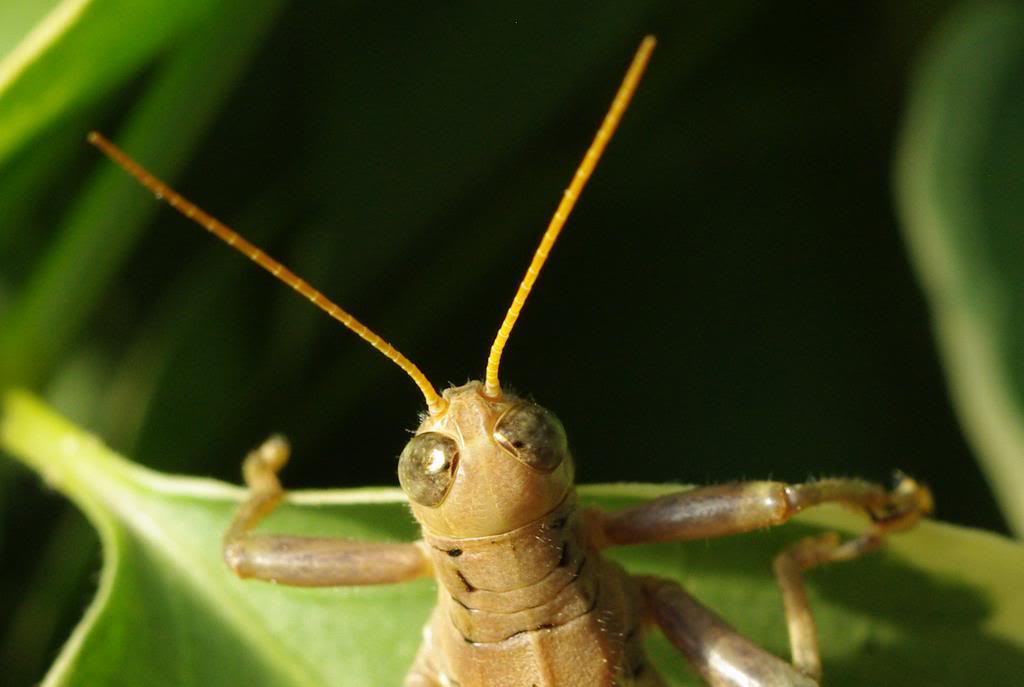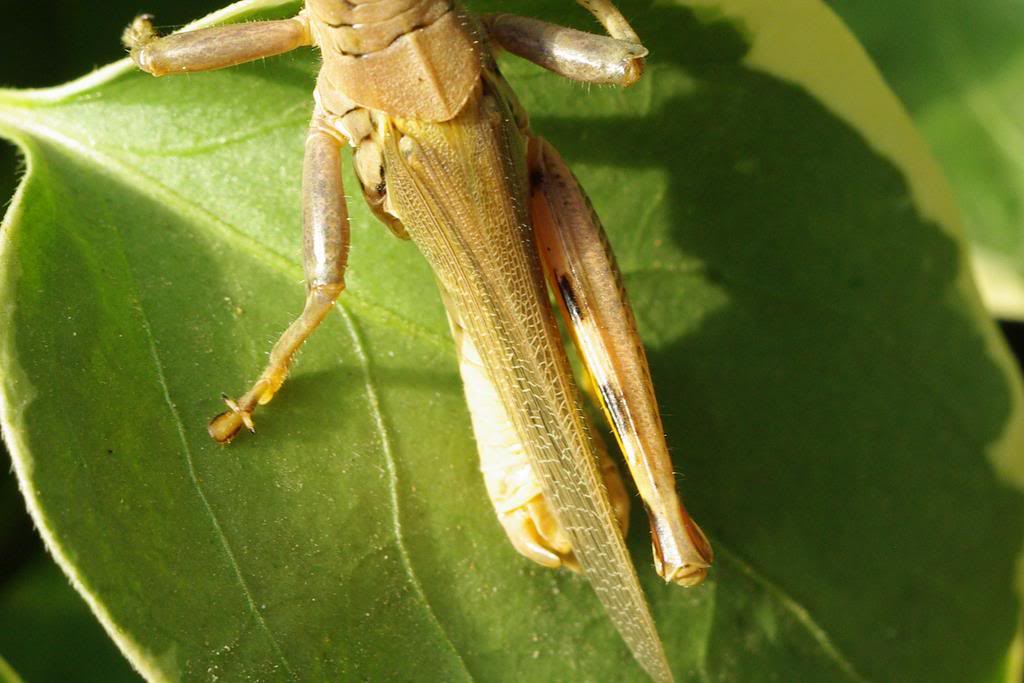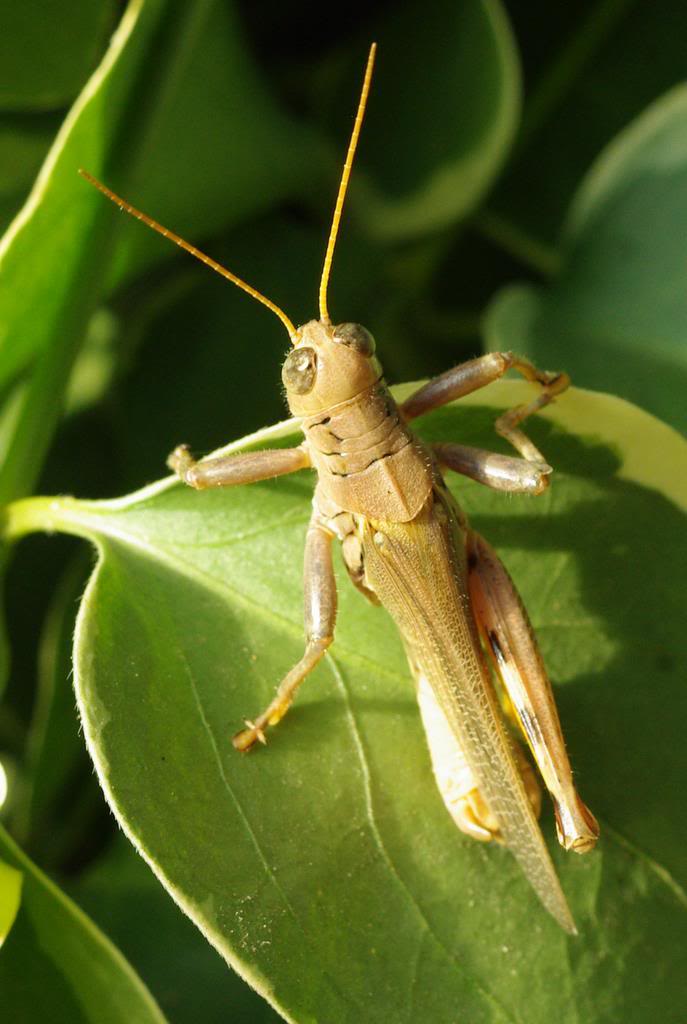We're getting to a time of year that I really love in the garden: late summer. There are many things to like about the garden at this time, but what I like most is the ambiance, and that is mainly due to one garden resident: the grasshopper.
I suppose I should say grasshoppers, katydids, and possibly crickets, because they all add their calls to the layer of sound that blankets my yard at this time of year. I'll probably take a more in-depth look at grasshoppers in another post, but today I just want to show you a real grasshopper.
You see, I think that grasshoppers -- like many things -- have a misleading or inaccurate name. They don't really hop, do they? Doesn't hopping require a repetitive motion -- like a bunny, or kangaroo? Grasshoppers will jump once or twice, but that's usually it. Not repetitive.
Doesn't hopping also require the use of one leg only, or is that a special case? (Think of childhood activities, like hopscotch.)
They should have been called grassjumpers.
Except for this guy. He's a true hopper. How do I know?
He has only one jumping leg. No choice but to hop, right?
He doesn't look amused.
.






You made me blow hot chocolate out my nose!!!!!!!
ReplyDeleteExcellent photos and funny post :-). I photographed a rather large katydid the other day. I do miss the sound crickets and relatives make. Don't know why we don't have more.
ReplyDeleteHa! Here I was waiting to learn something new about what constitutes a "true" grasshopper in the insect world. =D
ReplyDeleteSorry for the spilled beverage.
ReplyDeleteThis isn't always the right place for learning. The funny thing is I didn't notice that he had just one leg until I had taken a few photos too.
hahaha! i love this post. it made my day! lol!
ReplyDeletethanks for sharing!
~Angel~
hey i wana know..how far a grasshopper hops with just one leg? same as with two legs or distance covered would be small?
ReplyDelete